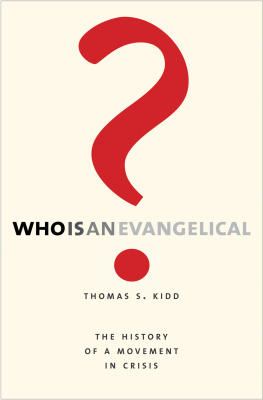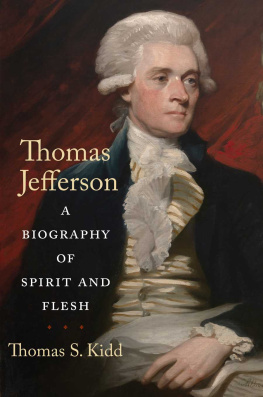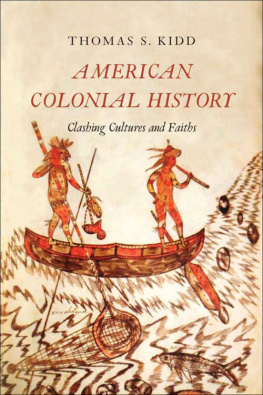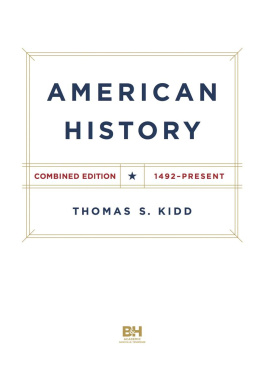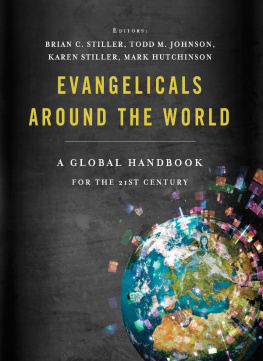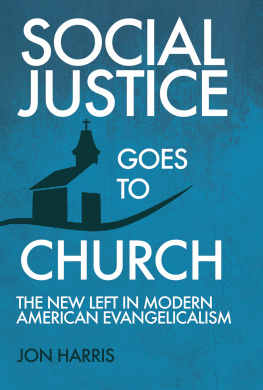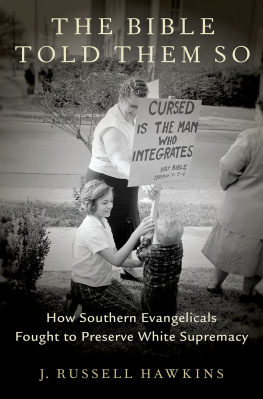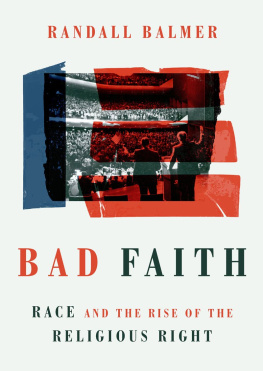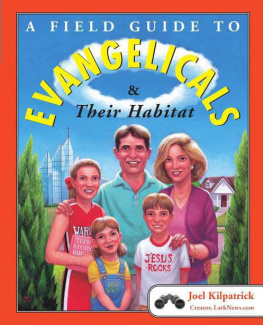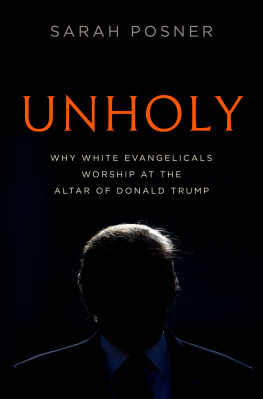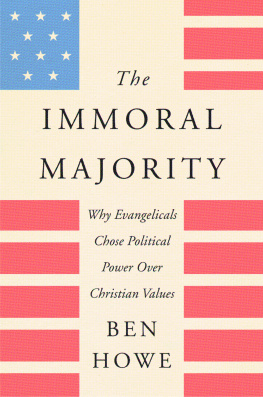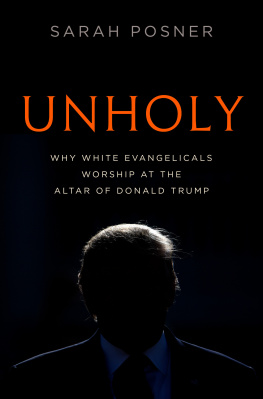Who Is an Evangelical?

Published with assistance from the Mary Cady Tew Memorial Fund.
Copyright 2019 by Thomas S. Kidd.
All rights reserved.
This book may not be reproduced, in whole or in part, including illustrations, in any form (beyond that copying permitted by Sections 107 and 108 of the U.S. Copyright Law and except by reviewers for the public press), without written permission from the publishers.
Yale University Press books may be purchased in quantity for educational, business, or promotional use. For information, please e-mail (U.K. office).
Set in Minion type by IDS Infotech Ltd., Chandigarh, India.
Printed in the United States of America.
Library of Congress Control Number: 2019933835
ISBN 978-0-300-24141-9 (hardcover : alk. paper)
A catalogue record for this book is available from the British Library.
This paper meets the requirements of ANSI/NISO Z39.48-1992 (Permanence of Paper).
10 9 8 7 6 5 4 3 2 1
Blessed be the God and Father of our Lord Jesus Christ! According to his great mercy, he has caused us to be born again to a living hope through the resurrection of Jesus Christ from the dead.
I PETER 1:3 (English Standard Version)
Contents
Introduction
W ho Is an Evangelical? is an introduction to what is arguably Americas most controversial religious movement. The word evangelical itself is a source of confusion: scholars, journalists, and the public cant seem to decide what it means. (I will explain what I mean by it momentarily.) Nonevangelical people who follow the news may have a variety of impressions about what the term suggests. But one certain association people make with the word is Republican. The term evangelical has become fundamentally political in popular parlance. Another likely association is white. Many may recall that around 81 percent of self-described white evangelicals voted for Donald Trump. Polls and stories about evangelical political behavior almost always assume the evangelicals in question are white. Some polls dont account for any other kind of evangelical.
This book seeks to show how historically peculiar a partisan and ethnic definition of evangelicals is. It also explains what went wrong with the public understanding of evangelicals, and how a group of what I will call Republican insider evangelicals abetted the politicization of the movement.
Todays crisis of evangelicalism is rooted in the movements history. But the crisis became increasingly conspicuous after World War II, grew more acute during the Moral Majority era of the 1980s, and then broke wide open with the 2016 election of Donald Trump. The evangelical crisis has several overlapping facets, including (1) confusion about the term, (2) an impression that evangelical may just mean white Republicans who consider themselves religious, (3) a sense that political power may be the essential evangelical agenda, and (4) the inability of evangelicals of different ethnicities, especially whites and blacks, to agree on basic political questions.
I am not a disinterested observer of this crisis. In addition to being an academic historian, I am a white evangelical myself. I experienced spiritual conversion in my teens, and since then I have been involved in a variety of evangelical parachurch ministries and churches. For the past two decades, I have been active in a conservative Baptist church in Waco, Texas, where I teach an adult Sunday school class. I am one of the few people in my church who would regularly use the word evangelical, though. Others, when pressed, might describe themselves as Baptist or Bible-believing or born again.
Evangelical is a scholarly and journalistic term that doesnt resonate with many laypeople (especially nonwhites), including those who do appear to be evangelicals according to standard definitions. Trying to pin down evangelicals can be maddening: some Christians who seem to be evangelicals do not describe themselves as such. Others (especially whites) who dont necessarily hold evangelical beliefs or regularly attend church nonetheless tell pollsters that they are evangelicals. As we proceed, I will examine why this might be.
I also blog at the evangelical website The Gospel Coalition and have written for outlets such as Vox and the Washington Post about evangelicals and politics. In publicly exploring the evangelical crisis, I have deplored the turn that many white evangelicals took in the 2016 election. I am a #NeverTrump evangelical. Though I had never been a straight-ticket voter, I usually voted Republican in elections prior to 2016. But in that year, I voted for neither the Republican nor the Democratic presidential nominee. I believe that something has gone terribly wrong in much of white evangelical culture, though I remain as committed as ever to historic evangelical beliefs and practices. I will keep going to my evangelical church, but at the moment I am politically homeless.
This book is an attempt to introduce readers to evangelicals experiences, practices, and beliefs, and to examine the reasons for our crisis today. I hope that scholars will find the book valuable, but it is mainly written for other peoplejournalists, pastors, people who work in politics, and morewho are interested in what makes evangelicals tick. Who Is an Evangelical? is for people who might ask, What has happened to evangelicals? They were supposedly a religious movement, but now they seem to show up only on Election Day to vote Republican, regardless of who that Republican is. My hope is that this book will show that there is far more to the evangelical story. The narrative of white evangelicals corrupt quest for Republican power is not false. But it is incomplete.
This is an introduction to evangelicals. A full account of the evangelical movement would have to be much longer, and would detail the phenomenal global expansion of evangelical and Pentecostal faith over the past century. In contrast, my account is focused on North America and is deliberately limited in scope. Specialists may be disappointed that I dont give attention to certain evangelical or Pentecostal leaders. My intention is not to slight any aspect of evangelical history, but simply to provide a primer that is as useful as possible.
Evangelicalism was multiethnic from the beginning. This is one of the reasons that the refrain of evangelical support for Donald Trump is problematic. Hispanic, African American, and other evangelical people of color are just as evangelical as white evangelicals are. Sometimes nonwhite evangelicals seem more consistent in their beliefs and actions than white evangelicals. My intention is that whites do not appear in this book, implicitly or explicitly, as the normal evangelicals. Especially in a global perspective, as evangelicals and Pentecostals have forged centers of evangelical strength in Latin America, Africa, and Asia, white English speakers are just one evangelical cohort among many. But theyre a cohort with disproportionate power and resources.
What does it mean to be evangelical? The simple answer is that evangelical Christianity is the religion of the born again. I will explain more about the term born again in the chapters to come. For now, Ill say that being born again is the conversion experience that defines what it means to be an evangelical. The great English Methodist John Wesley wrote that conversion is a thorough change of heart and life from sin to holiness; a turning. This turning, to evangelicals, is enabled by Gods power.
Heres a more detailed definition: Evangelicals are born-again Protestants who cherish the Bible as the Word of God and who emphasize a personal relationship with Jesus Christ through the Holy Spirit.
Next page
